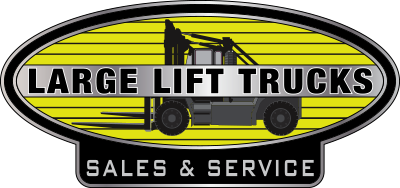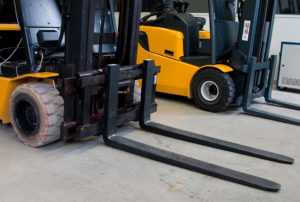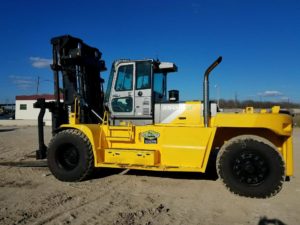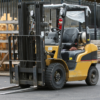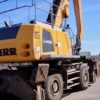What do forklifts run on? Types of Forklift Fuel?
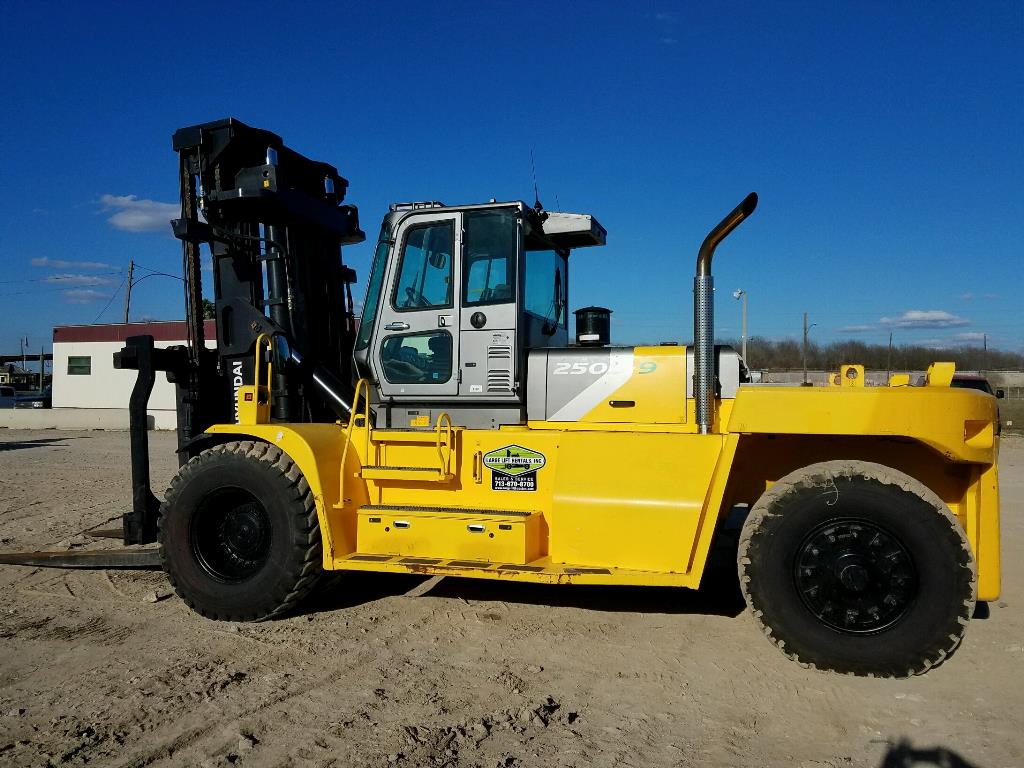
Forklift trucks run on different fuels, including gas, diesel, and electricity. All these fuel options have their share of pros and cons. Therefore, warehouse owners should look at all the functional aspects of these fuel options before investing in any type of forklift truck. Here, we will discuss the types of fuels used in forklifts and their pros and cons so that it becomes easy for you to make a decision.
The fuel options available in forklift trucks are available in a variety of specifications to meet different requirements of the warehouse and that particular industry. However, it is required that whichever forklift is chosen meets all the requirements and needs of the industry and the warehouse owner, as a forklift is a considerable investment.
All the modern forklifts are equipped with the latest technology and are designed to fulfil almost all the needs of any warehouse owner. There are a variety of customization options available, and most forklifts can be easily fitted with the features required by your business. Therefore, you must analyze all the pros and cons of forklifts to decide on a suitable option for investment.
Types of Forklift Fuels
There are majorly three types of fuels used for forklift trucks, diesel, LPG, and electricity. Read on to learn more about them.
Electric Forklift Trucks
When it comes to using forklift trucks for indoor work, electric ones are considered the best. Electric forklift trucks are suitable for flat concrete surfaces and indoor material handling. In addition, electric trucks are eco-friendly and cost-effective.

Pros
Electric forklift trucks don’t burn fossil fuels and are environmentally friendly. They don’t release harmful chemical fumes, which are common with diesel-powered forklift trucks. Electric forklift trucks run on batteries and are considered best for indoor material handling.
Electric forklift trucks don’t create any noise pollution along with other forms of environmental pollution. Compared to diesel and LPG forklift trucks, electric ones don’t produce noise, making it easier to work indoors.
Electric forklift trucks have the lowest running cost in comparison with other types of forklift trucks. The fuel rates have been increasing rapidly over the past few years, making other forklift trucks less efficient than electric forklift truck.
Electric forklift trucks are more stable in comparison to other types of forklift trucks. Therefore, electric forklifts are preferable amongst all other options as they are sturdy and can easily access places that other trucks cannot.
Cons
Along with the advantages, electric forklift trucks have a few issues as well. Electric forklift trucks are not suitable for rough, rainy, or wet environments. They can face several issues while working in such weather conditions.
Electric forklift trucks require overnight charging for a better user experience. They cannot be used anytime and anywhere as the battery requires time to charge. Due to this reason, several warehouse owners don’t prefer using electric forklift trucks for their business.
The battery power of electric forklift trucks lasts for around 16 hours; after that, the trucks need to go for charging. Therefore, the warehouses cannot rely on forklifts that cannot be used readily. This is one of the reasons why many warehouse owners don’t prefer investing in electric forklift trucks.
Gas Forklift Trucks
Gas forklift trucks are a type of truck that can be used for indoor and outdoor material handling. There are mainly two types of gas-powered forklift trucks- LPG forklift trucks and CNG forklift trucks. They have almost the same features, and all the pros and cons are common to both.

Pros
Gas-powered forklift trucks can be used for indoor and outdoor material handling. They are considered one of the best forklift trucks when it comes to carrying heavy materials with ease.
Gas forklift trucks are usually available with a dual fuel system which helps the users to switch between both fuels according to their choice. This is one of the reasons why warehouse owners are always interested in investing in gas-powered forklift trucks. In addition, gas forklifts also have a fast-refuelling ability. As a result, they take much less time than any other forklift truck to refuel and get back to work.
Gas forklift trucks are cheaper than other forklift trucks. So, they are a good investment for any warehouse owner. The gas forklifts are also very quiet while working. So they do not create noise pollution or ruin the environment. LPG can be accessed easily as it is the most commonly used gas option. So, there is no issue with refilling or interchanging the cylinders.
Cons
Gas-powered forklift trucks have a significant risk of explosion as they have pressurized gas in the cylinders. Therefore, they must be used with utmost care to stay safe from any explosion.
Gas-powered forklift trucks use fuels which are harmful to the environment. Although they have lower emission rates, they still release carbon monoxide, which is highly detrimental, especially when used indoors.
The fuel prices keep regularly increasing, making it even costlier to use a gas-powered forklift truck. They are a cheaper option while investing, but the fuel prices make them less cost-efficient in the long run.
Diesel Forklift Trucks
Diesel forklift trucks are the best option for outdoor material handling. They can work in any adverse condition with much ease and efficiency. Check out all the pros and cons listed here before investing in a diesel forklift truck.

Pros
Diesel-powered forklift trucks have an immense capacity to carry heavy and bulky materials easily. Moreover, unlike electric and gas forklift trucks, diesel trucks can work more efficiently in adverse conditions.
The lifespan of the engine of a diesel forklift truck is much better than other types of forklift trucks like LPG and electric forklifts. This is because the engine of diesel-powered forklift trucks doesn’t get affected quickly even after using them in harsh weather conditions.
Diesel-powered forklift trucks can be used anytime, no matter the situation. Unlike electric trucks, which require overnight charging, diesel trucks can be used in any weather condition and even if the fuel is about to run out, the diesel forklift will not stop suddenly like the gas forklift trucks.
Cons
Diesel-powered forklift trucks must be avoided for indoor work. This is because they emit high amounts of chemical fumes that harm the environment. While outdoors, this fume is scattered in the environment, but indoors, it can be extremely difficult to manage the fumes.
Diesel trucks require more space to work than other forklift trucks. Unlike electric forklift trucks, they are big and cannot move in narrow spaces. Also, diesel forklift trucks are a costly investment for any warehouse owner. If you are someone who wants a forklift with all of these features, then only invest in diesel forklift trucks.
Now that you have all the details required to understand the various fuel types available in forklifts, it will be easier to make a decision regarding the most suitable option for your requirements.
